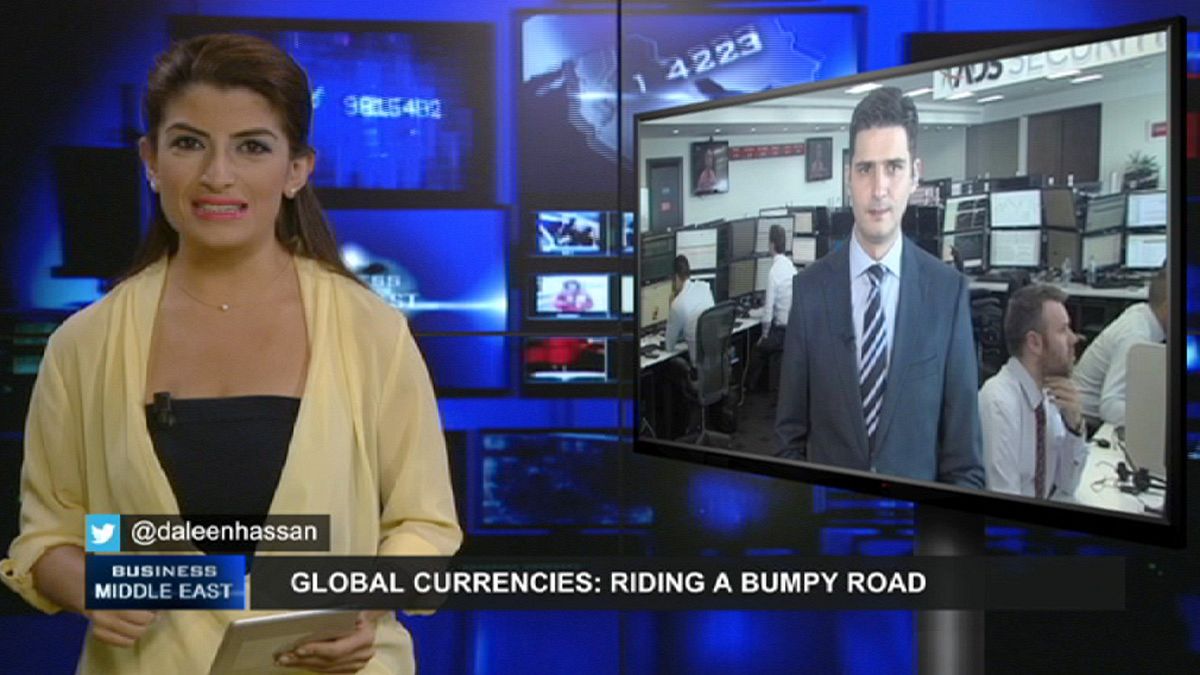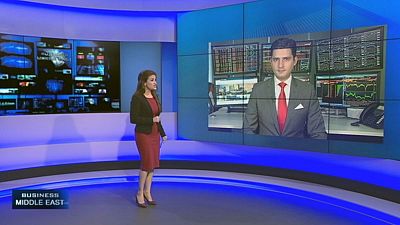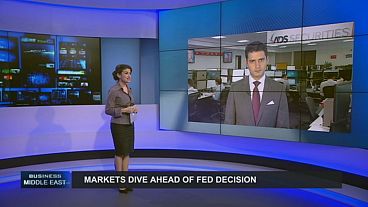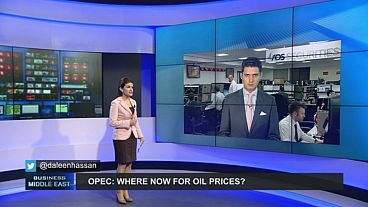This week’s Business Middle East takes a look at global currency trading trends, and in business snapshot we look at the reactions to the new fuel
This week’s Business Middle East takes a look at global currency trading trends, and in business snapshot we look at the reactions to the new fuel prices in the UAE.
Global currencies are experiencing many ups and downs, especially with significant decisions made by many central banks, that have weighed on currency trading .
At a time when the dollar continues to shine, the euro has flopped to levels that are close to parity.
The yuan has stayed zen through the turmoil despite the extreme volatility seen in the Chinese stockmarket and the focus remains on joining the international currency basket.
Let’s take a look at the details on currency performance since the beginning of 2015.
Switzerland drops a forex bombSince the beginning of 2015, central banks have had to make many decisions that have weighed heavily on currencies.
The US dollar index was in the spotlight the most as the Fed provided more hints about raising interest rates. It has risen more than 11.7% since the beginning of the year, reaching its highest level since 2003.
The greenback rose sharply against most major currencies, except for the Swiss franc due to the intervention of the Swiss central bank at the beginning of the year.
The weakening Euro is wobbling at around parity with the US dollar due to the ECB’s quantitative easing program which has been printing more money.
Sterling was under pressure although it recently recovered as the Bank of England dropped hints that interest rates will rise.
The Chinese yuan maintained a stable path and achieved decent gains against most of the world currencies.

The Japanese yen , the Australian dollar and New Zealand currencies remained under pressure due to the contraction of global commodities such as gold, oil, and silver.
2015 a forex watershed says expert
To shed more light on currency trading moves, joining us as usual is Nour Eldeen al Hammoury ADS securities chief market strategist.
The global currencies have had a year to remember. If we analyse currency trends, which currency is likely to lead until the end of this year?
Nour Eldeen al Hammoury :
“The current year will be written in the history books, actually it’s already a year to remember, after significant interventions by the global central banks, the most important was the Swiss National Bank decision earlier this year which abandoned its currency ceiling with the euro. This led to global central banks intervening one after the other.
In the meantime, the US dollar remains the king of the currencies, despite the fact that it declined a bit recently as rate hike hopes fading by the day and the Fed repeatedly delayed the first rise.
The strongest currency that is likely to keep strengthening from now until the end of the year is the British pound, as the estimates are rising gradually for a rate hike by the BOE next year, which would lead investors to price in the rate hike in advance, just like what happened to the US dollar this year, when all traders were buying the US dollar based on a rate hike this year.”
Daleen Hassan , euronews:
“How is the Chinese yuan keeping its position as a safe and stable currency despite events that have recently occurred in the Chinese markets?”
Nour Eldeen al Hammoury:
“The Chinese Yuan is not open, not a free currency to be traded on a daily basis. The Central Bank has notable control of this currency. Moreover, there is a limited trading band between levels of 1% to 1.5% daily, up or down). The currency can’t move more than this percentage no matter what.
Moreover, China started to do swap deals with many of the world’s countries, trading transactions between China and other countries including the European Union, meaning that trading Chinese goods is in the Chinese Yuan and not in US Dollars.
This has increased the rating of the currency over the years. Now everyone is waiting for the IMF meetings in September and October, and this might come up with an announcement for the Chinese Yuan to join the world currency basket. In the years ahead, the Chinese yuan may reach the same rating with the US dollar as a reserve currency.”
Business Snapshot
In a proactive step to save billions from the general budget of the United Arab Emirates , the government lifted fuel subsidies , and linked fuel to international prices. which means a 24% petrol price jump.
The UAE Energy Minister believes that the decision will support the country’s economy.
What were the reactions on the first day of the new prices?
Euronews correspondent Rita del Prete took the pulse in Dubai.
No worries over pricey petrol
United Arab Emirates residents have started to buy oil derivatives after new prices were put in place on August 1st.
A litre of petrol rose by 24%, taking 95 octane to 2.14 dirhams per liter, from Dh1.72. However the price of diesel has been reduced by 29% from 2.90 to 2.05 dirhams.
Euronews spoke to people in Dubai on the first day of the new prices.
“For expats the price is still affordable, but I don’t know if it is for Pakistanis or Indians,” said one French-speaker.
“We don’t pay any sales tax in Dubai, we don’t pay any V.A.T. or anything of that sort. So I think the price is quite reasonable actually,” said another foreigner.
“In Saudi Arabia water is expensive, but fuel is very cheap and here water is cheap but the fuel is expensive”, was another reaction.
Many reports claimed that Kuwait and Saudi Arabia may take a similar decision soon.
“The government’s move is aimed at supporting the UAE economy. The reduction in oil prices has slashed government revenues for all the countries in the Gulf region. The IMF forecasts a budget deficit for 2015,” reports Rita del Prete.
Do share your thoughts with us via euronews’ social network using hashtag #businessmiddleeast



